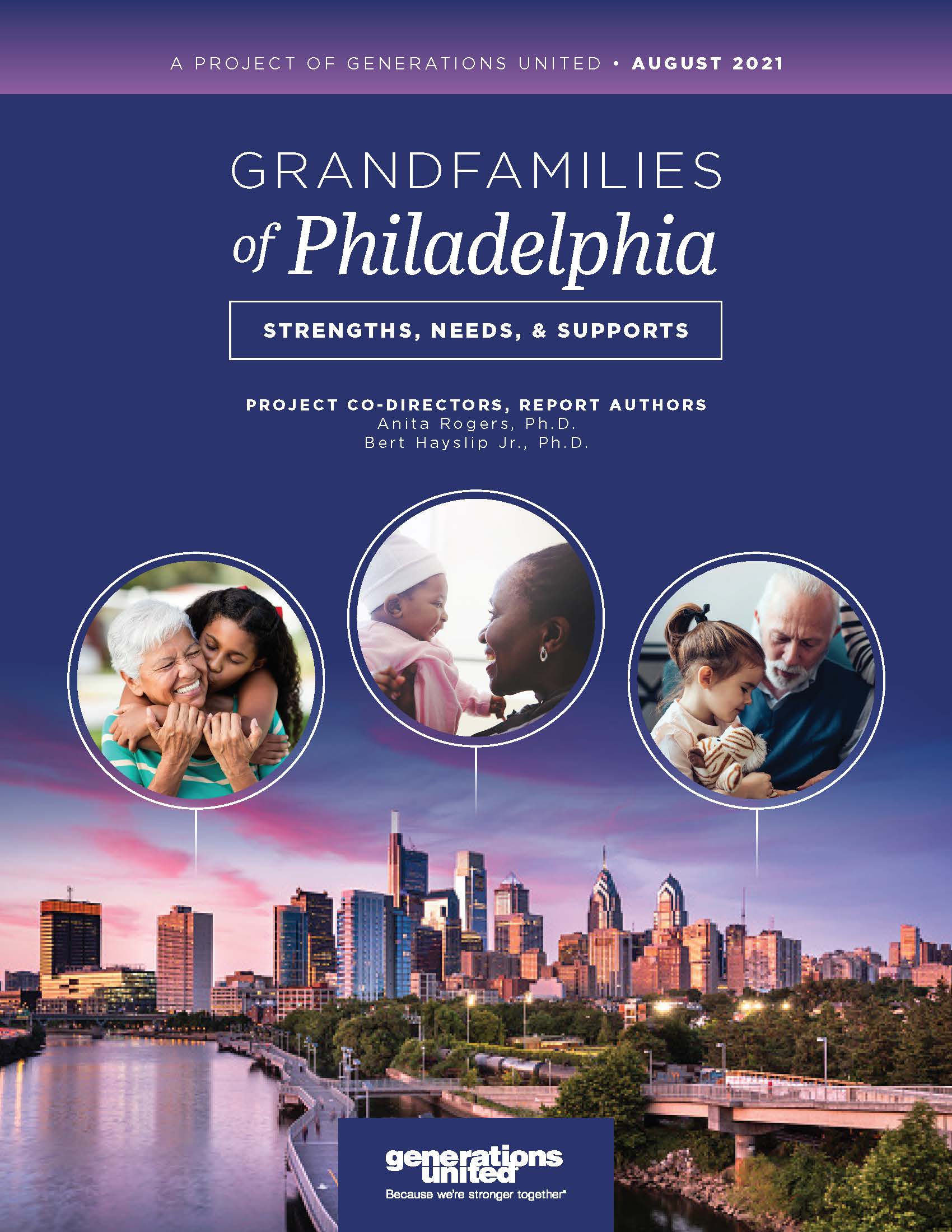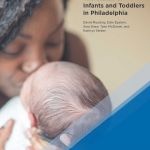Grandfamilies of Philadelphia
Seeking to better identify the strengths and challenges faced by grandfamilies across Philadelphia, Generations United conducted the Grandfamilies of Philadelphia project, which surveyed grandfamilies/kinship families and agencies providing services to them. The goal of the study was to help service providers, educators, policymakers, funders, and other community members to better understand the families, the availability of services for them, and the degree to which they are aware of and able to access helpful services. The study’s findings collected via surveys, key informant interviews, and focus group discussions can enhance the community’s awareness of grandparents’ perceived barriers to getting needed help, their feelings about parenting again, the difficulties they face in renegotiating their relationship with the child’s birth parent(s), and their lack of connection to others in the community. Equipped with such knowledge, practitioners can empower grandfamilies, increase their self-efficacy and sense of personal control, and improve the quality of their lives.
Nationally and in Pennsylvania, kinship care is the preferred placement option when a child can no longer live with their parents. The growth of grandfamilies and other kinship families has created a tremendous increase in scholarly and professional interest to explore and develop new institutional support systems to assist these kinship caregivers and the children in their care.
An accompanying literature review (appendix C) on grandfamilies was conducted as supportive research for the Grandfamilies of Philadelphia Project and provides significant context for its findings and recommendations. Leveraging the study’s findings and the existing research, this report includes a series of specific recommendations designed to help inform stakeholders in Philadelphia to improve the lives of these families.
Published: August 2021


